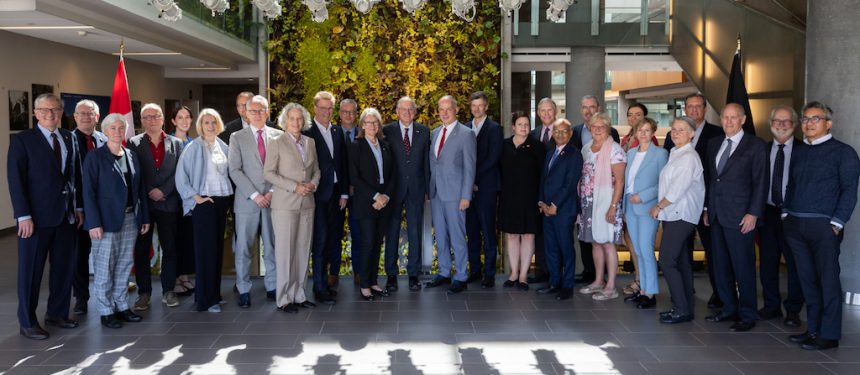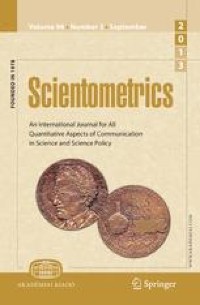German Research Groups Set out Wishlist for Incoming Government
Centre-right leader Friedrich Merz is expected to become chancellor in a new coalition following election.
Send us a link
Centre-right leader Friedrich Merz is expected to become chancellor in a new coalition following election.
Three years after the attack on Ukraine, positions are changing, but there is no more money in Germany for military research.
Two leading figures in German research see it as stuck in a ‘deep slump’. But more money is not necessarily the answer.
The EU's next framework research programme should continue funding projects aimed at bridging Europe's research and innovation gap, Germany's largest research organisation said in a paper highlighting their priorities for the successor of Horizon Europe.

The German U15 group of research-intensive universities has signed a long-term agreement to support closer ties between researchers and universities at its Canadian counterpart, U15 Canada.

Germany's federal research minister Bettina Stark-Watzinger is calling for sweeping reforms at the Fraunhofer Society, one of Europe's most prestigious applied research organisations, after auditors found "numerous violations" of financial rules, including members of the executive board exceeding spending limits for hotel stays and hiring luxury cars.
In 2019 the German Academic Exchange Service (DAAD) set up a new service, the Competence Centre for International Academic Cooperation (KIWi). It's been hugely popular, and the DAAD believes it's time to give it a boost.
Germany universities should carry out risk assessments when collaborating with China on sensitive technologies, after a string of investigations revealed that German researchers have been working on projects useful to the Chinese military.
A year has passed since Russia started to wage a gruesome war against Ukraine. Aside from causing thousands of deaths, displacing millions and causing a pan-European economic crisis, the invasion triggered a fundamental rethinking of German policy.
The European Commission is making a big push to reform research assessment, but Germany's university leaders are not convinced the call for change from above is the right way to deliver it.
This analysis uncovers new dimensions of migration among scholars by investigating the return migration of published researchers, which is critical for the development of science policy.

Germany's Jülich Supercomputing Centre has added a quantum computer to its existing high performance computing infrastructure, enabling the centre to get involved in practical applications of quantum computing at a very early stage, as the technology moves out the lab and into commercial use.
The research and higher education plans of the new german government include a new national technology transfer agency, better living support for students, and more job security for early career academics.
The association of public and government-recognized universities in Germany, the German Rectors' Conference or Hochschulrektorenkonferenz (HRK), along with several other higher education organizations, have been urging the future government in Germany to focus on crucial issues related to student support, research, and more.

For nearly 40 years, Germany's voice has been loudest in setting European Union research and innovation policy. Now, a split decision by German voters on Angela Merkel's successor throws into question what that policy will look like, and who will set it.
In unprecedented comments ahead of federal elections in September, Anja Karliczek applauds university that shuttered its institute.
